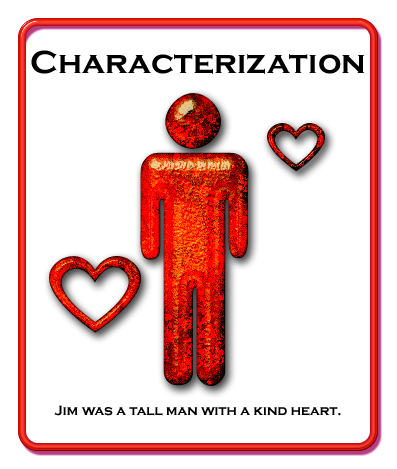
3. Allusion: a reference to a person, place, event, or a literary work that a writer expects a reader to recognize

4. Ambiguity: something uncertain as to interpretation

5. Anachronism: something that shows up in the wrong place or the wrong time
6. Analogy: a comparison made between two things to show the similarities

7. Analysis: a method in which work or an idea is seperated into its parts, and those parts given rigorous and detailed scrutiny

8. Anaphora: a device or repitition in which a word or words are repeated at the beginning of two or more lines, phrases, clauses, or sentences.

9. Anecdote: a very short story to illustrate a point

10. Antagonist: a person or force opposing the protagonist in a drama or narrative

11. Antithesis: a balancing of one term against another for emphasis or stylistic effectiveness
12. Aphorism: a pointed statement expressing some wise or clever observation about life
13. Apologia: a defense or justification againt some doctrine, piece of writing, cause, or action; apology
14. Apostrophe: a figure of speech in which an absent or dead person, an abstract quality, or something inanimate or nonhuman is addresses directly

15. Argument(ation): the process by convincing a reader by proving either the truth or the falsity of an idea or proposition; the thesis or proposition itself

16. Assumption: the act of supposing, or taking for granted that a thing is true

17. Audience: the intended listener(s)
18. Charcterization: the means by which a writer reveals a character's personality

19. Chiasmus: a reversal in the order off words so that the second half of a statement balances the first half in inverted word order

20. Circumlocation: a roundabout or evasive speech or writing, in which many words or used but a few would have served
21. Classicism: art, literature, and music refelcting the principles of ancient Greece and Rome: tradition, reason, clarity, order, and balance
22. Cliche: a phrase or situation overused within society
23. Climax: the decisive point in a narrative or drama

24. Colloquialism: folksy speech, slang words, or phrases usually used in informal conversation

25. Comedy: originally a nondramatic literary piece of work that was marked by a happy ending
26. Conflict: struggle or problem in a story causing tension
27. Connotation: implicit meaning, going beyond dictionary definition
28. Contrast: a rhetorical device by which one element (idea or object) is thrown into oppostition to another for the sake of emphasis or clarity

29. Denotation: plain dictionary definition
30. Denoument: loose ends tie up in a story after the climax, closure, conclusion



No comments:
Post a Comment